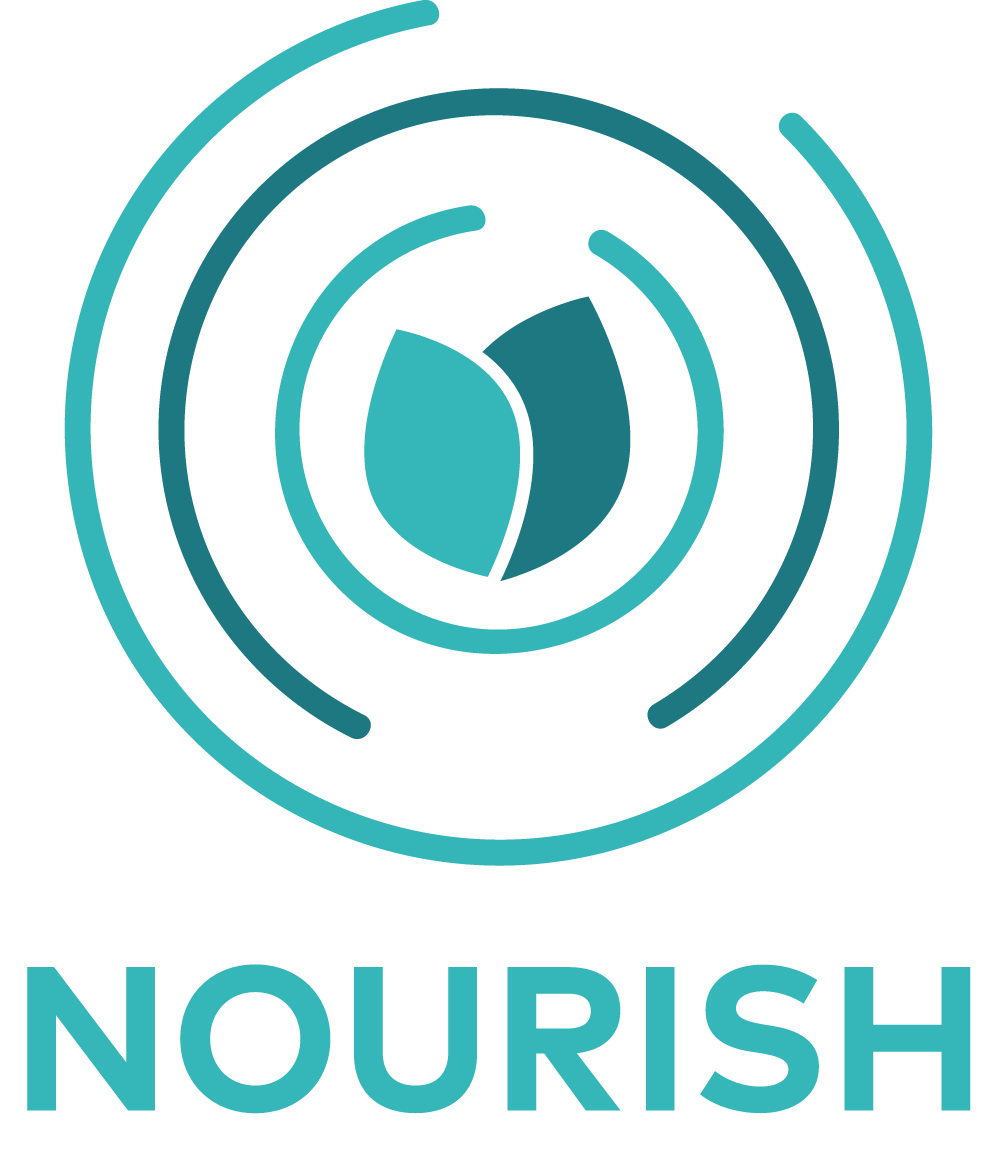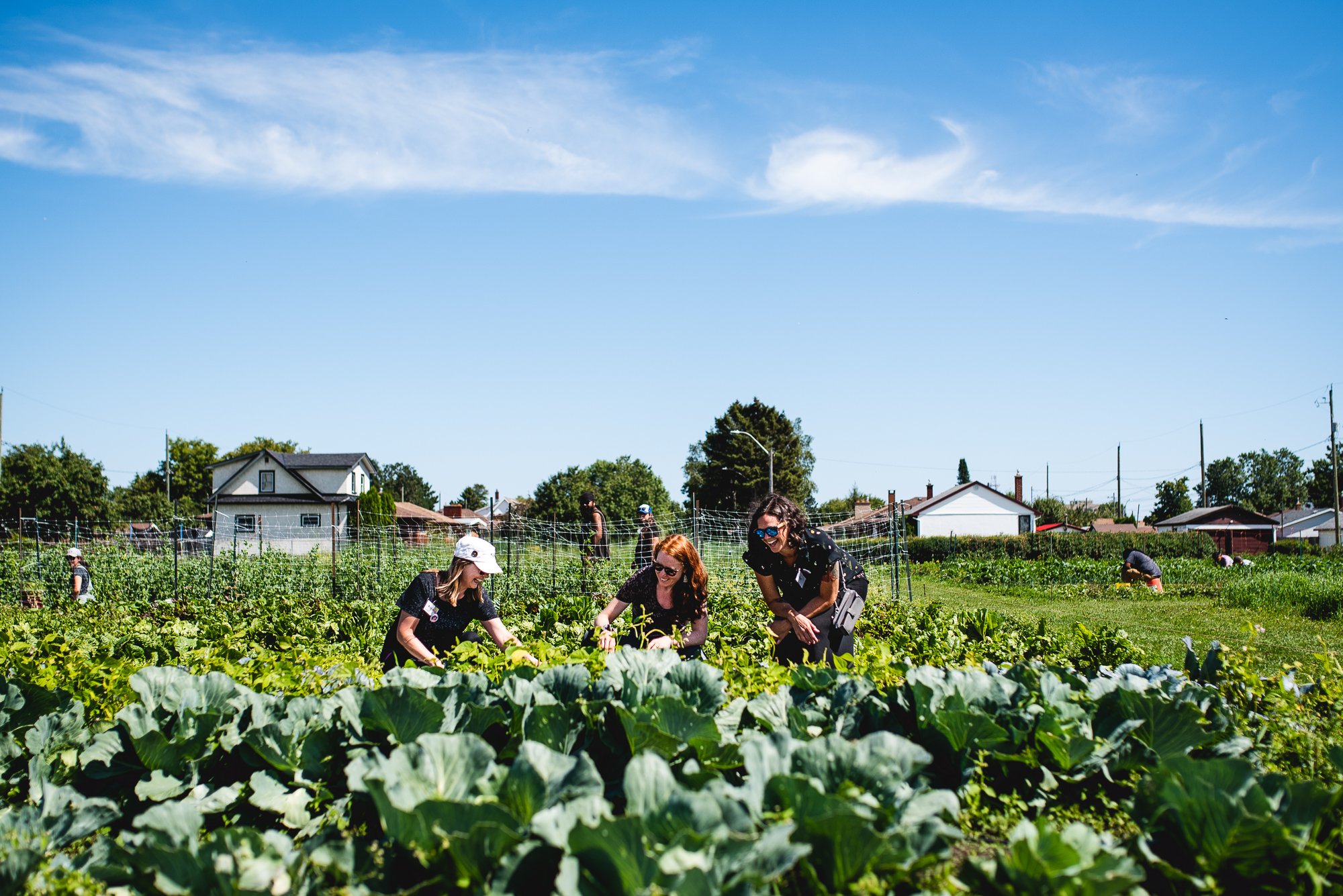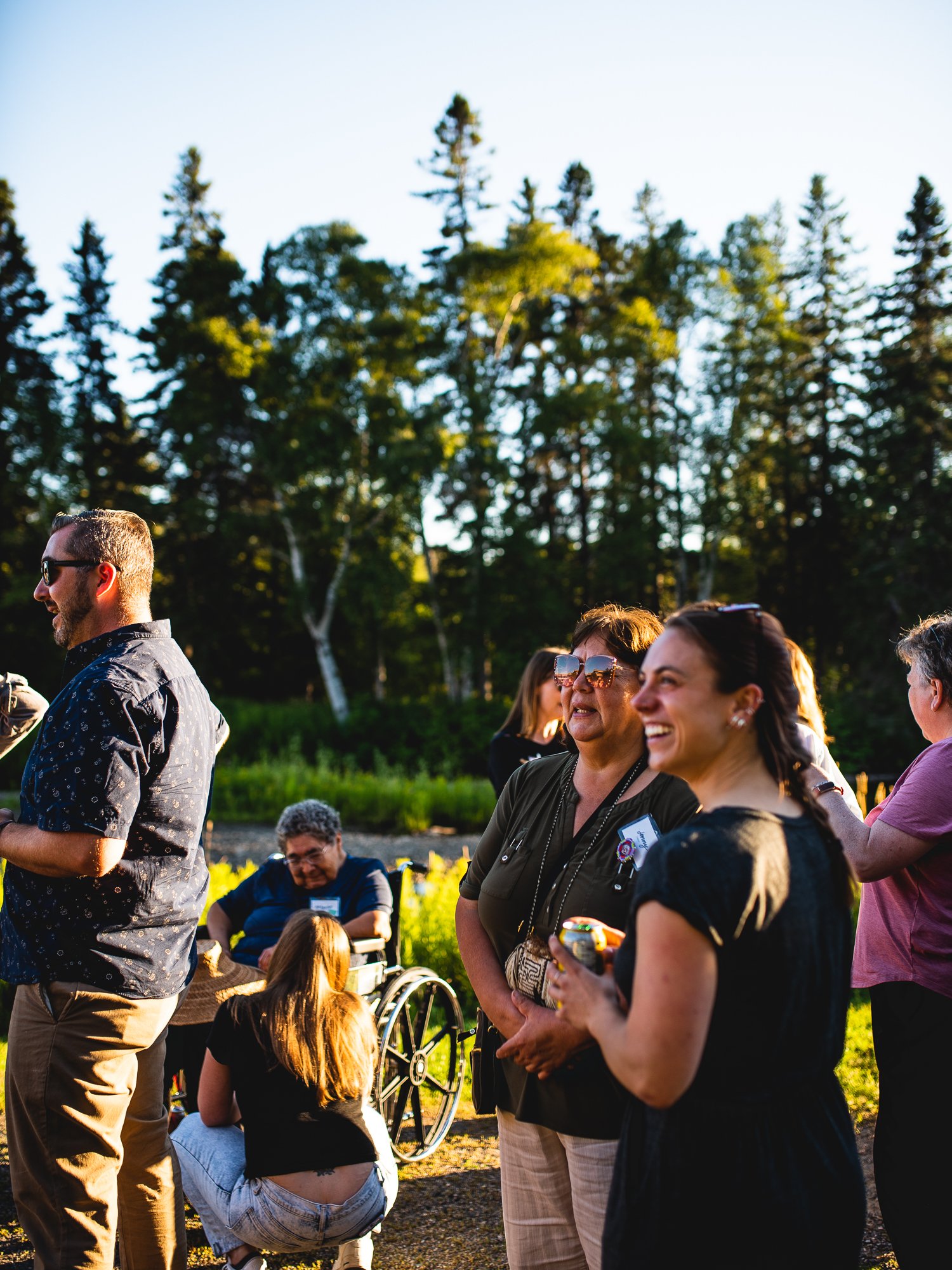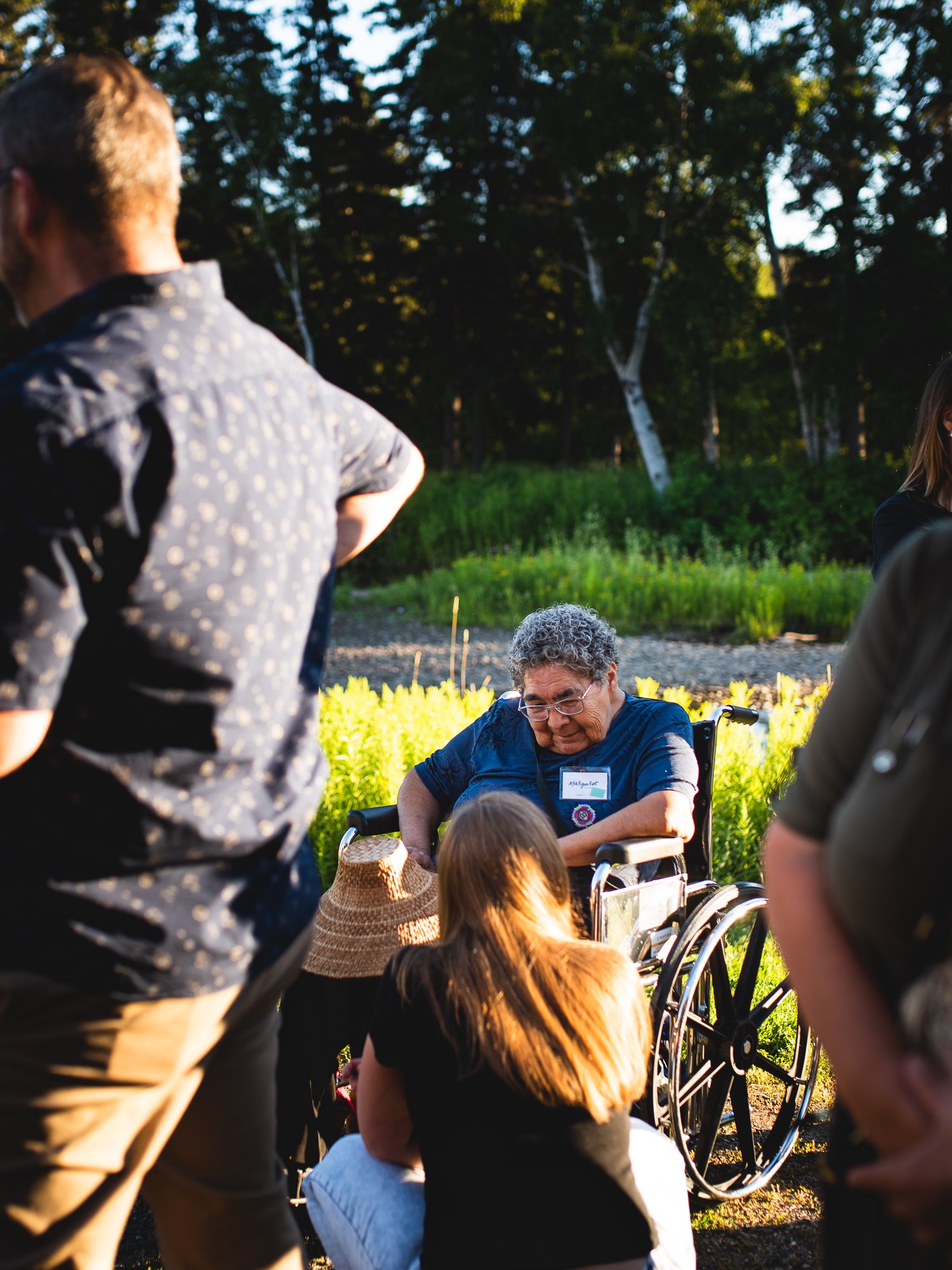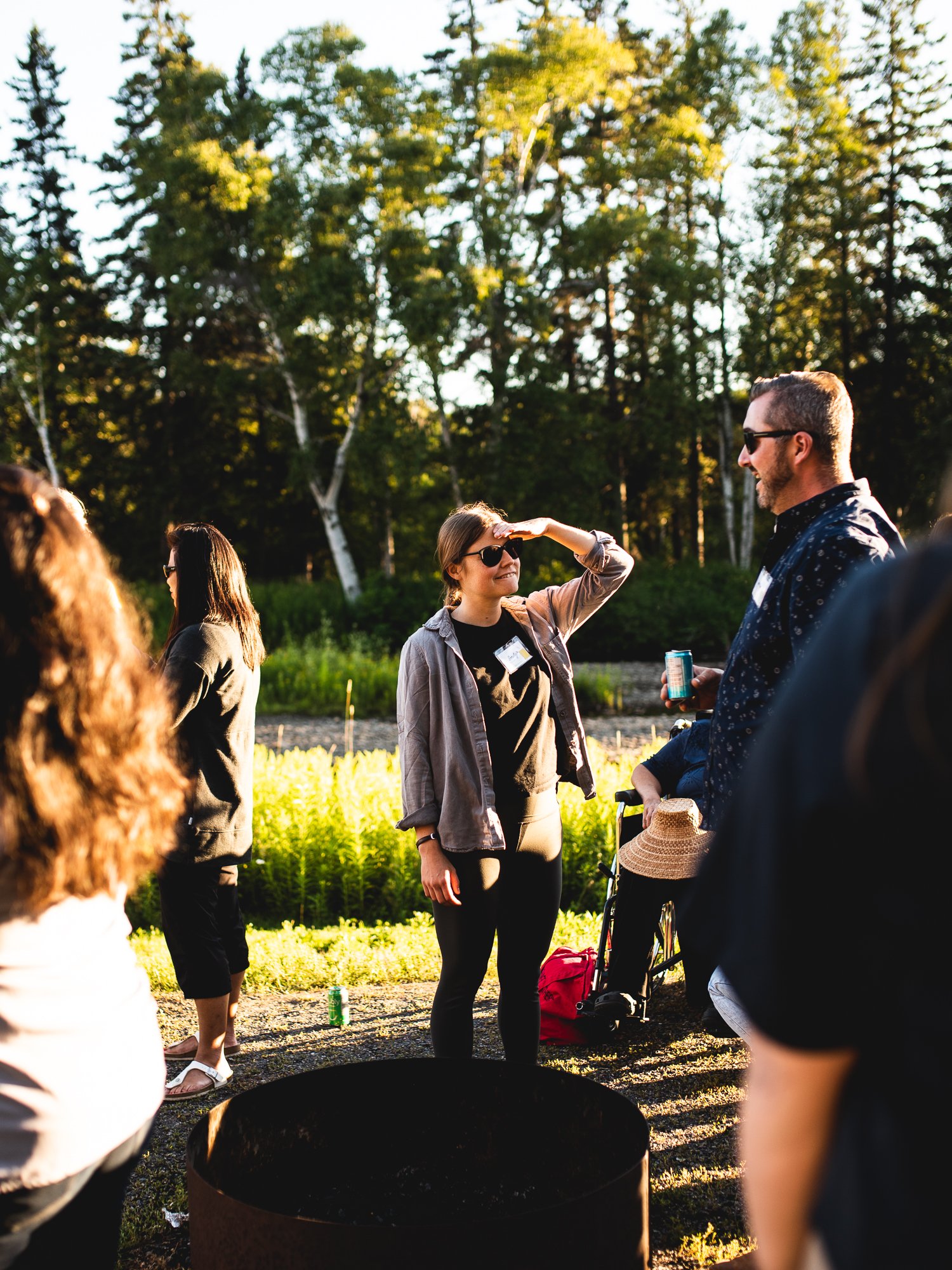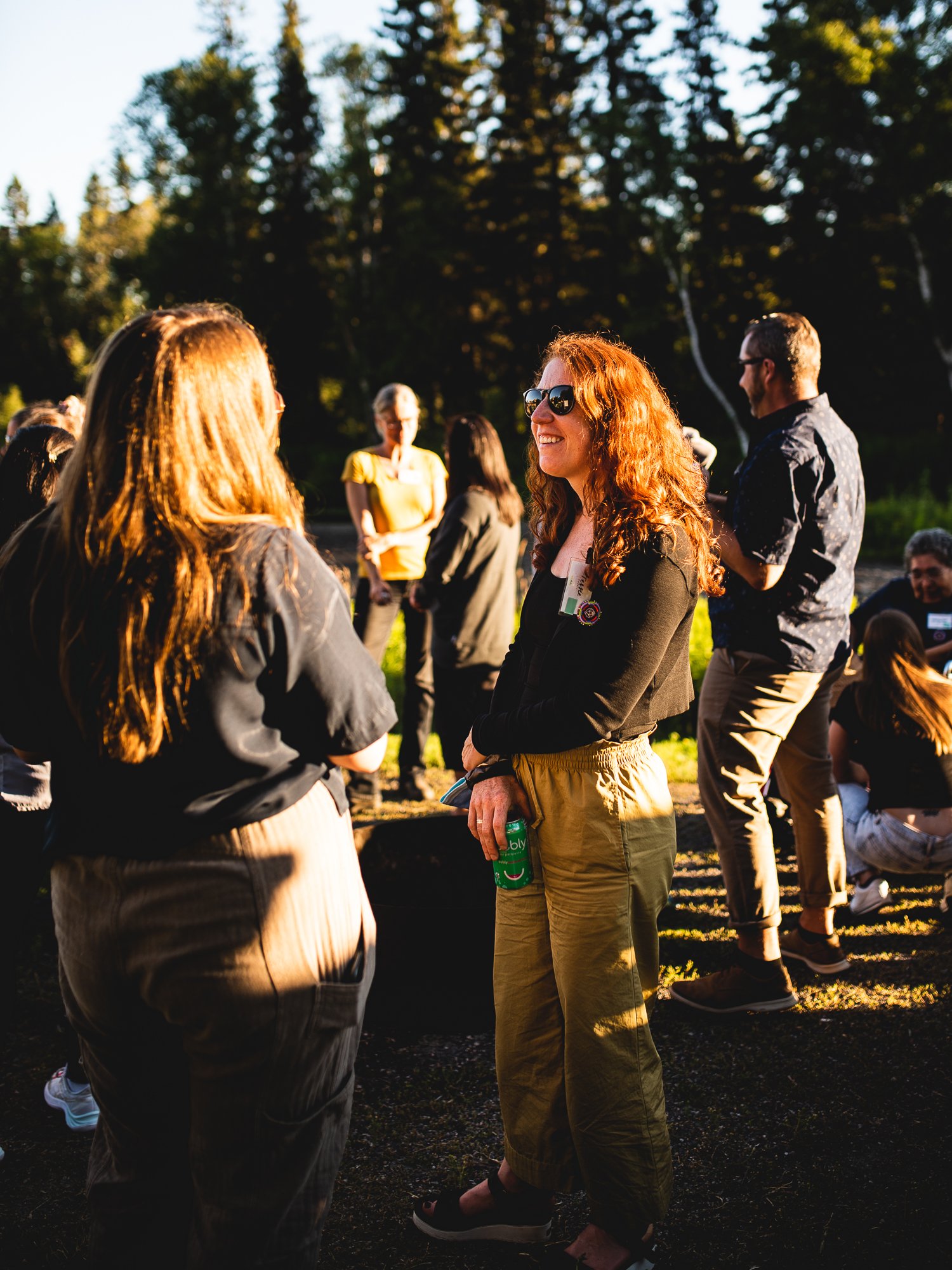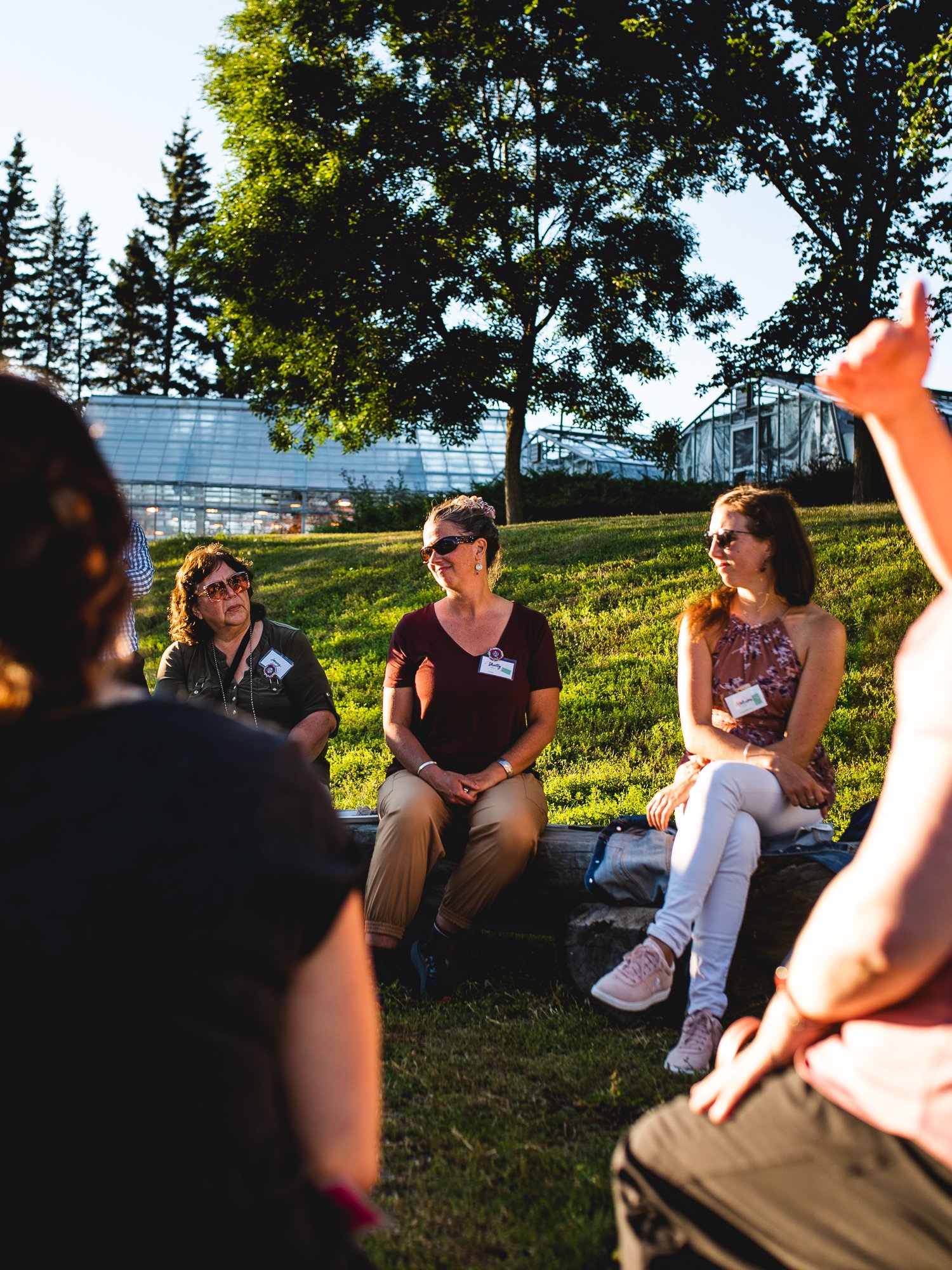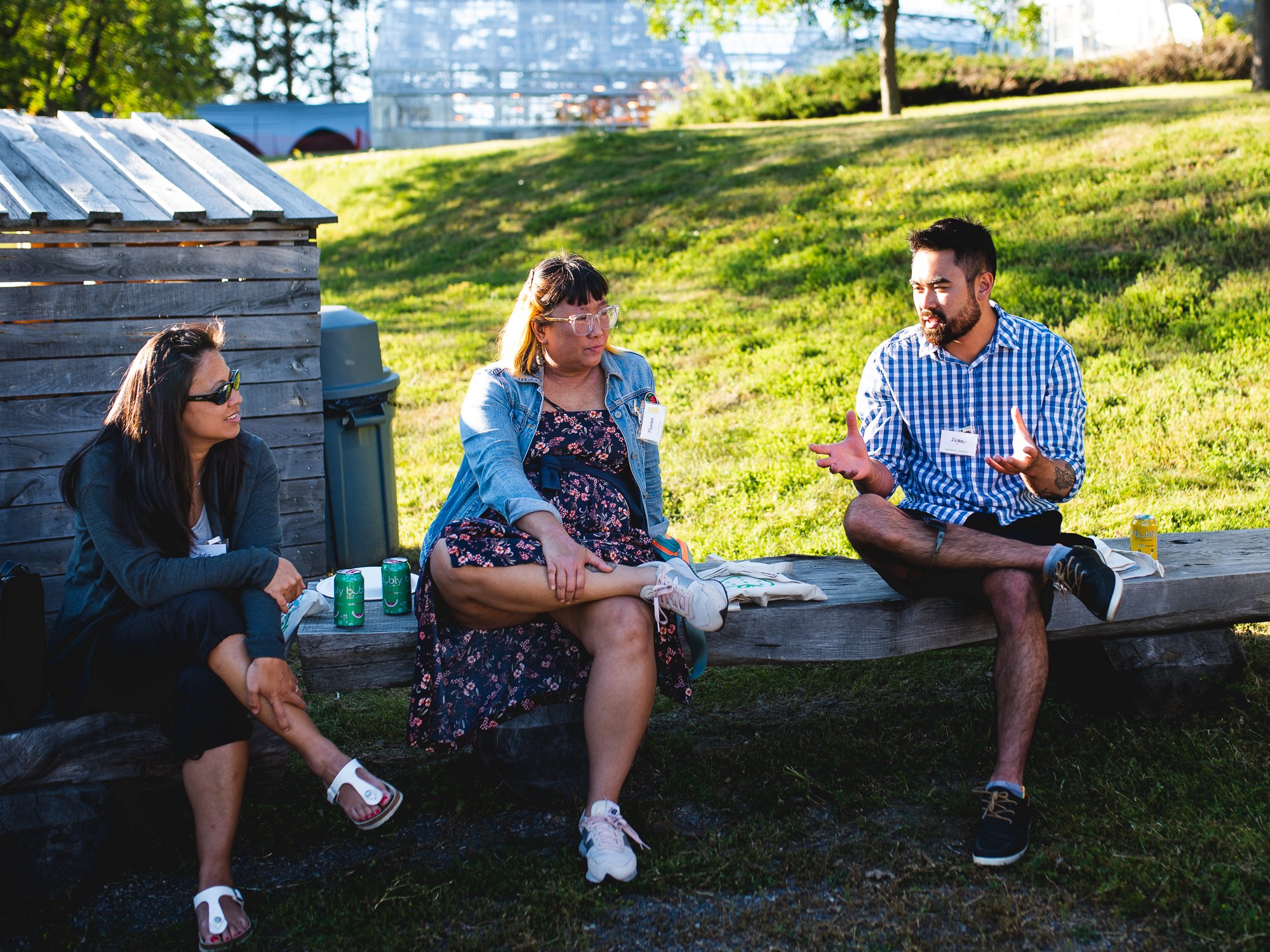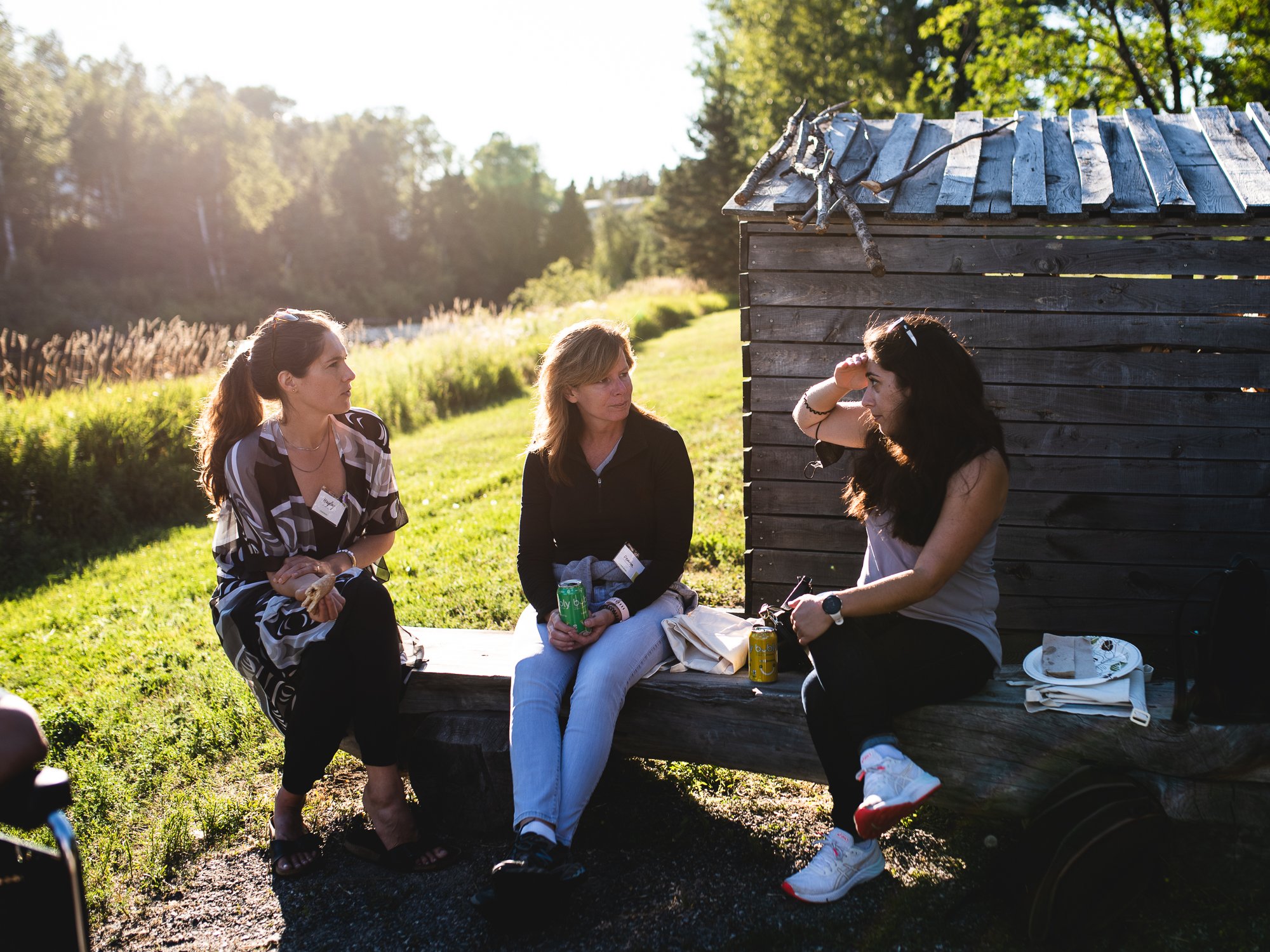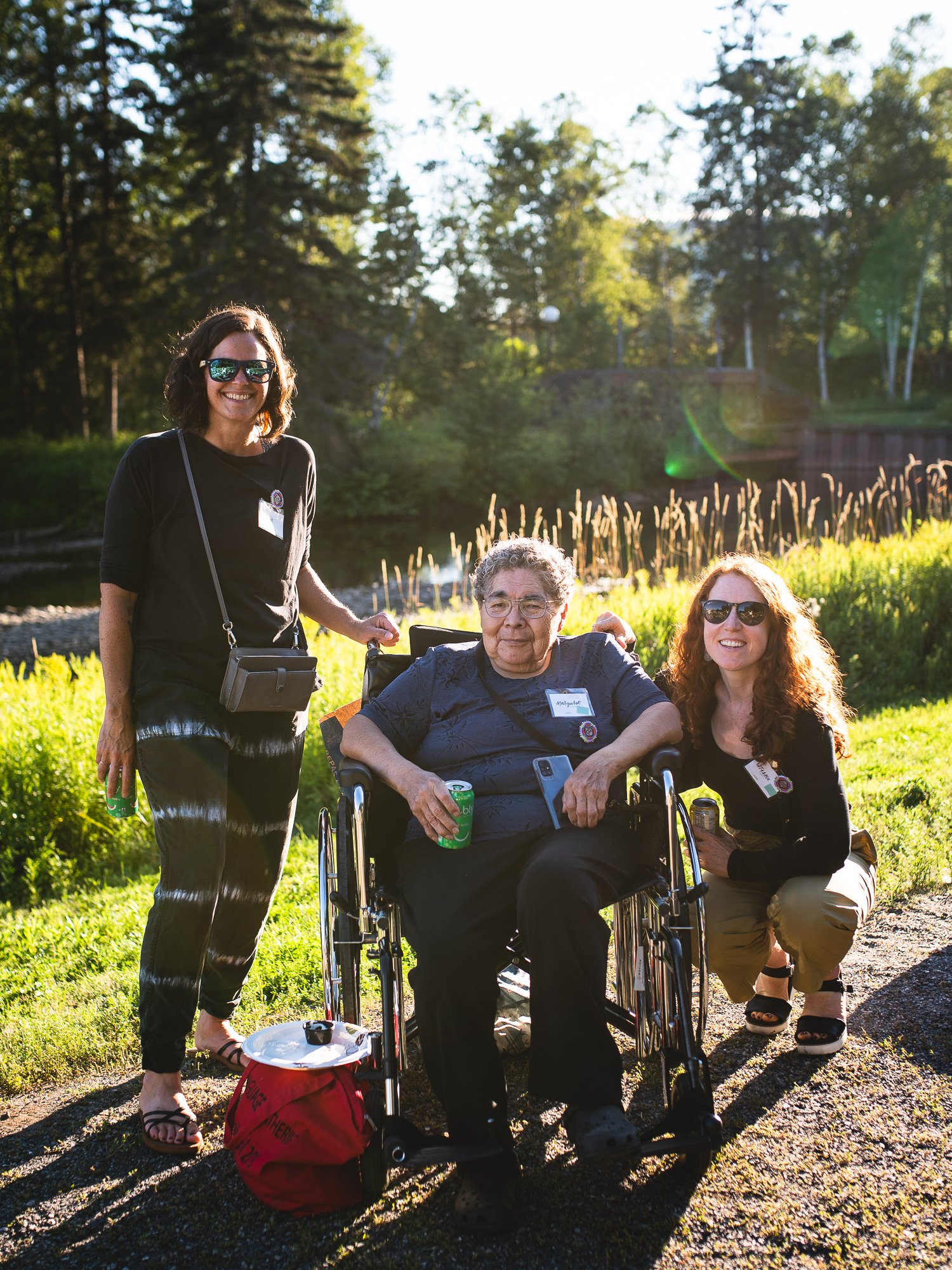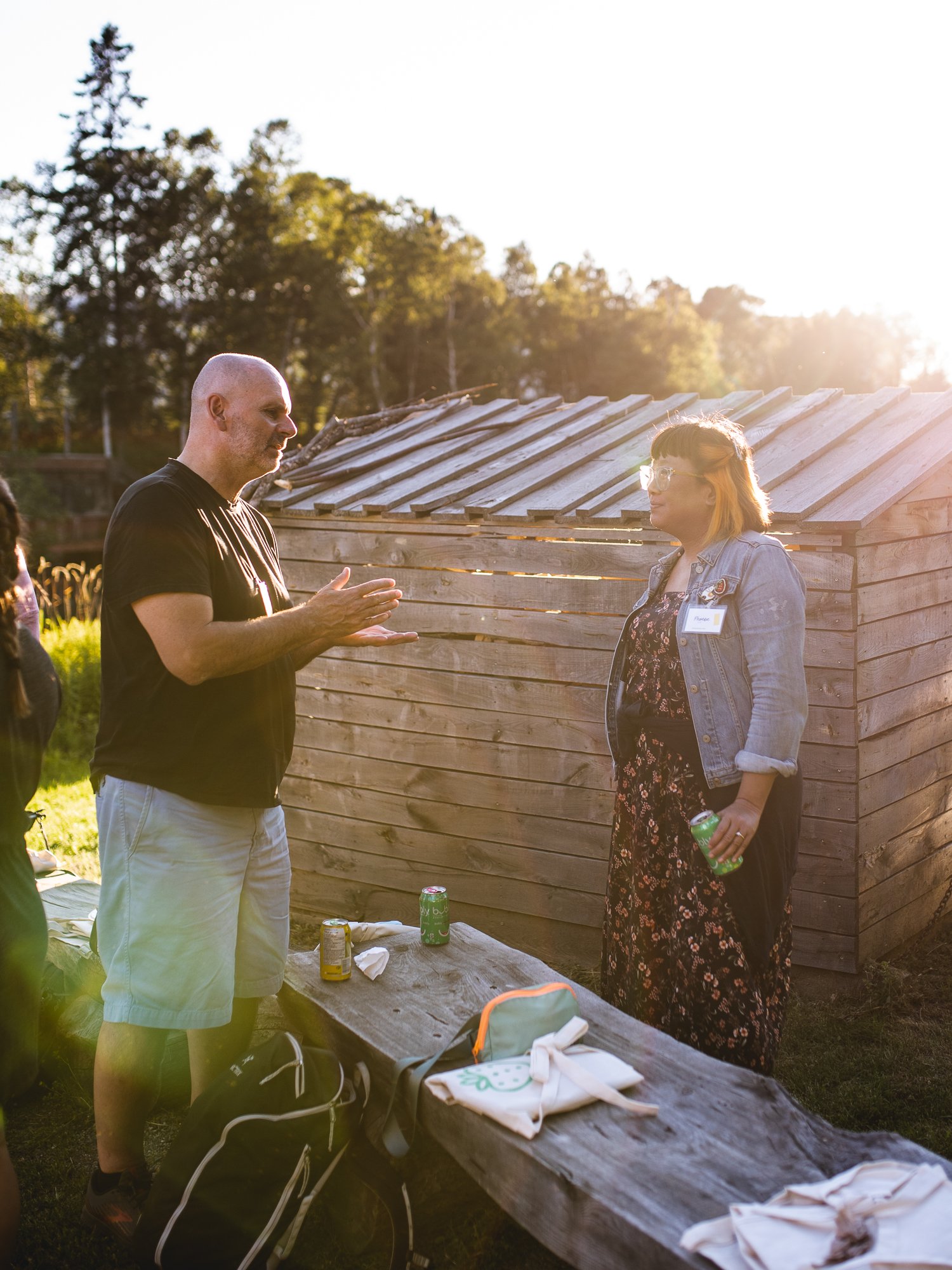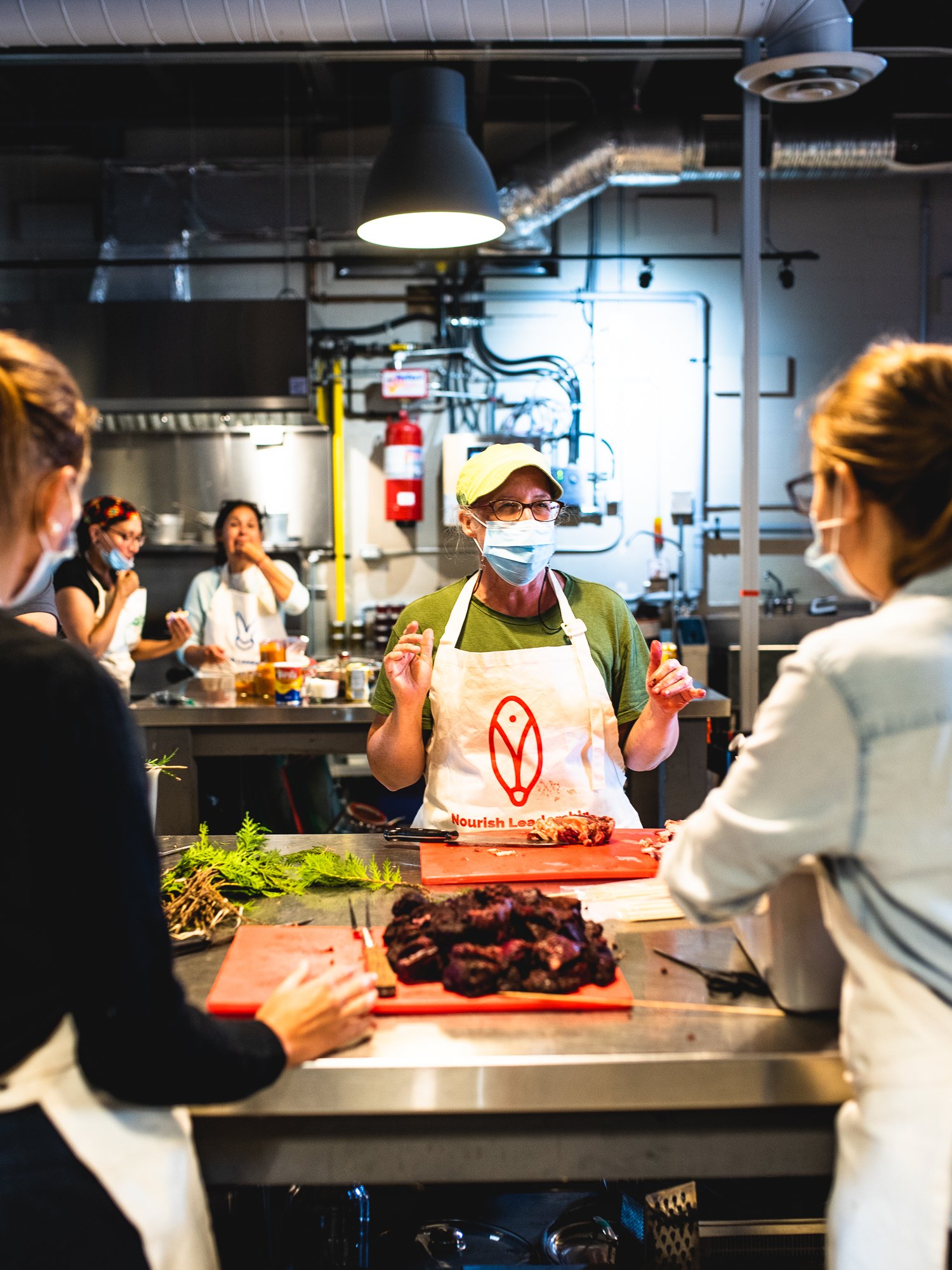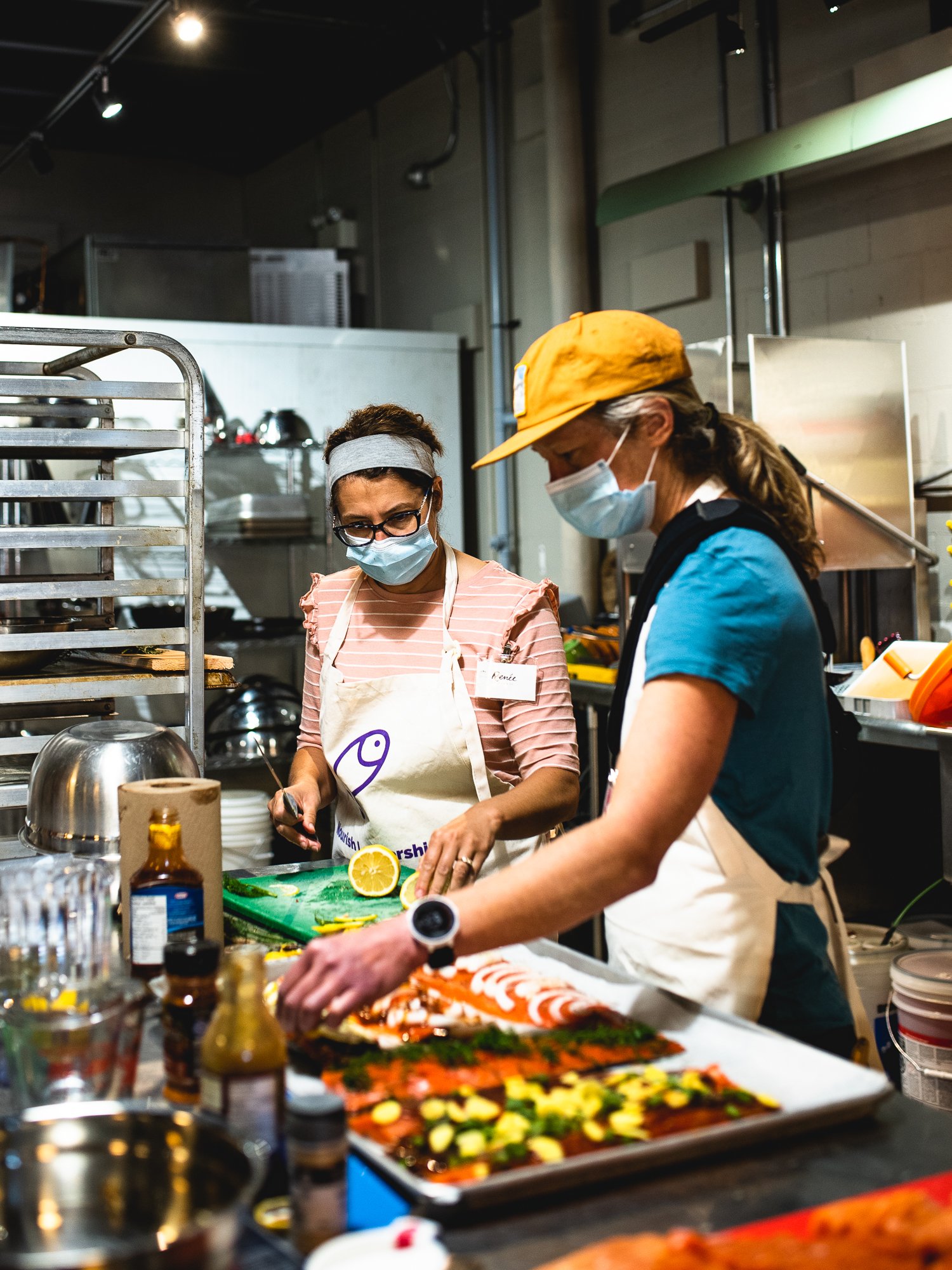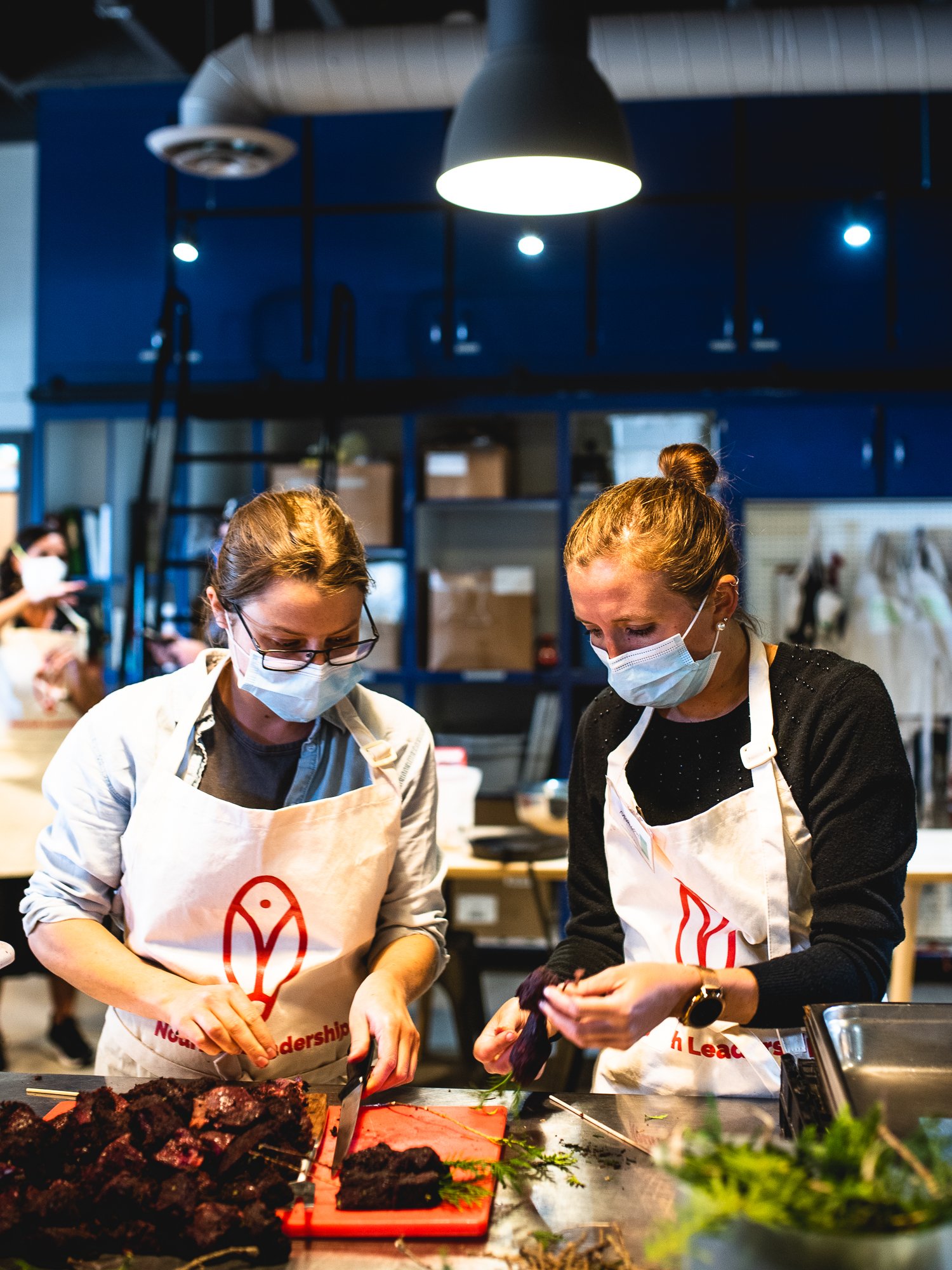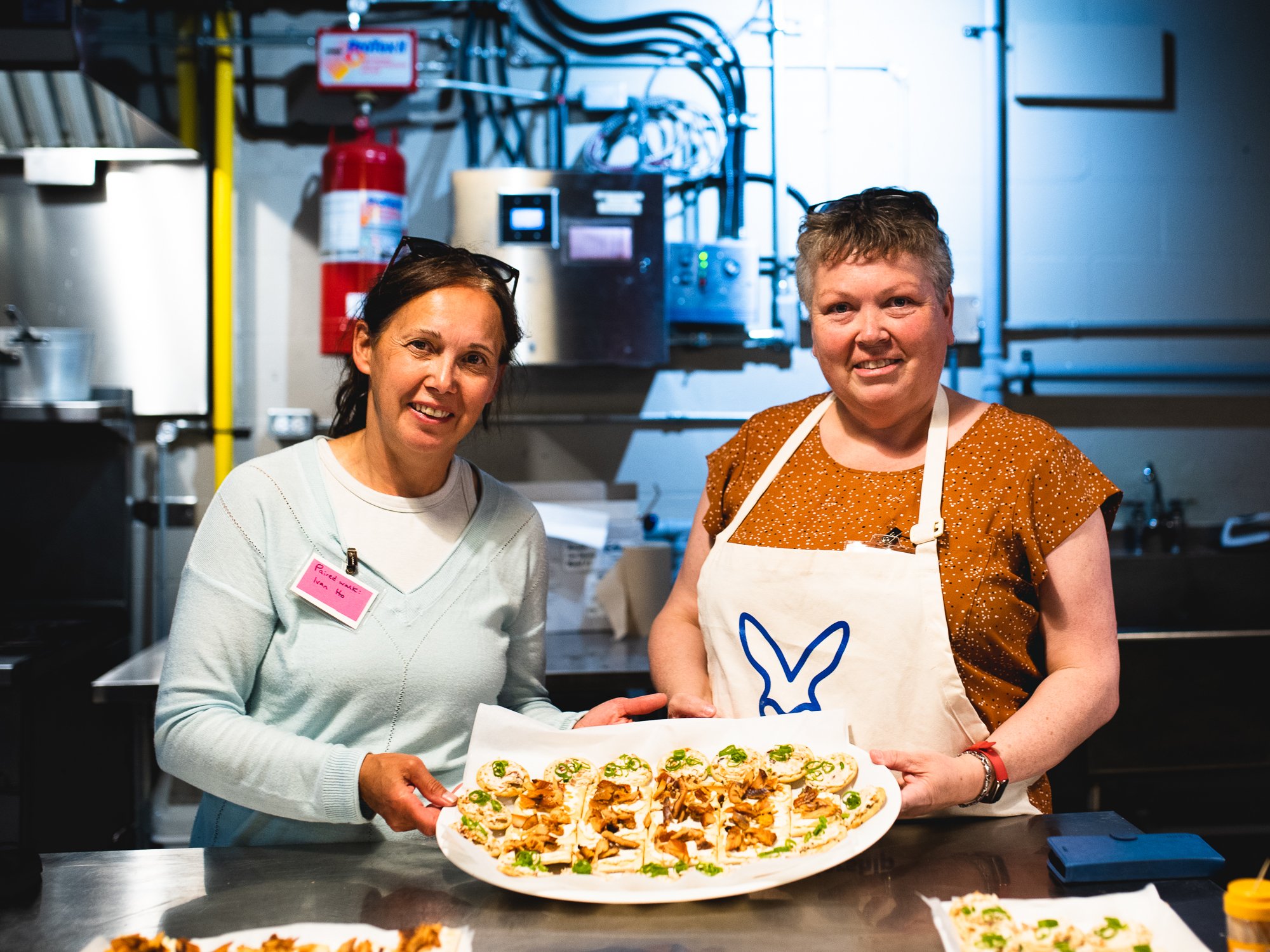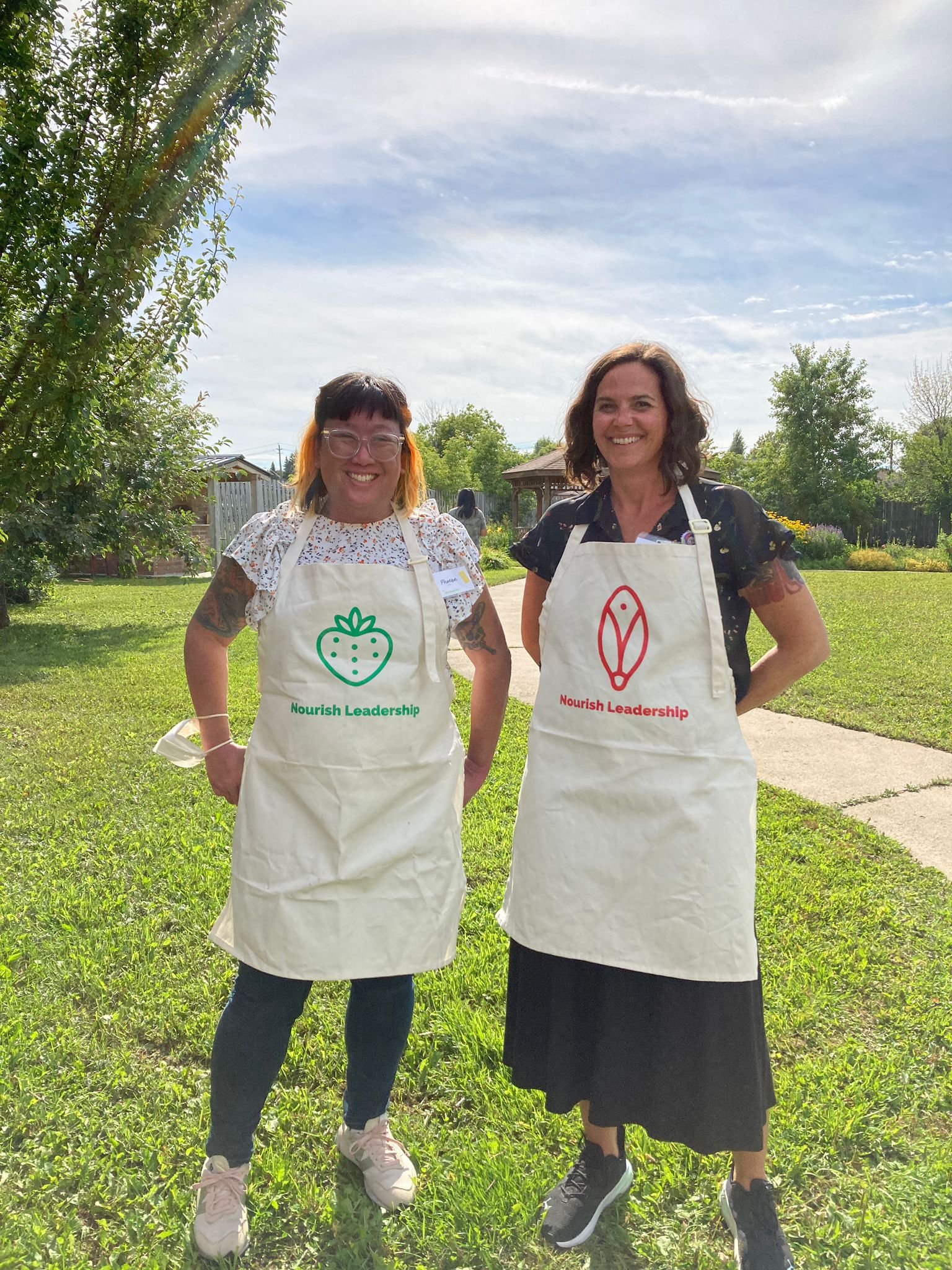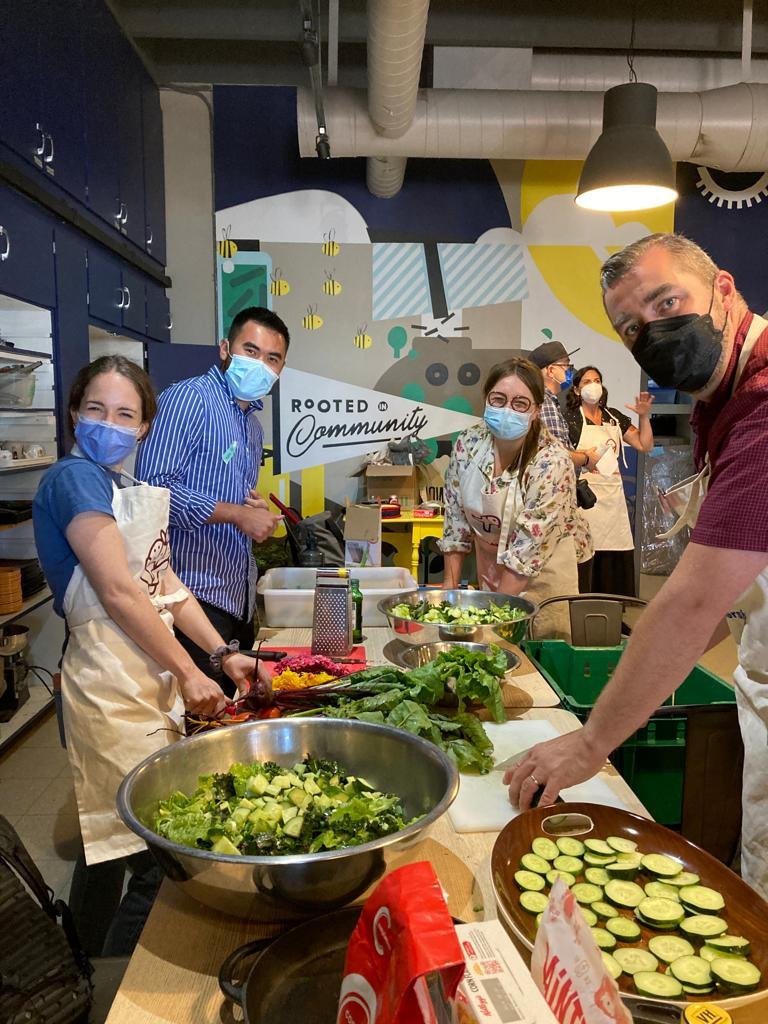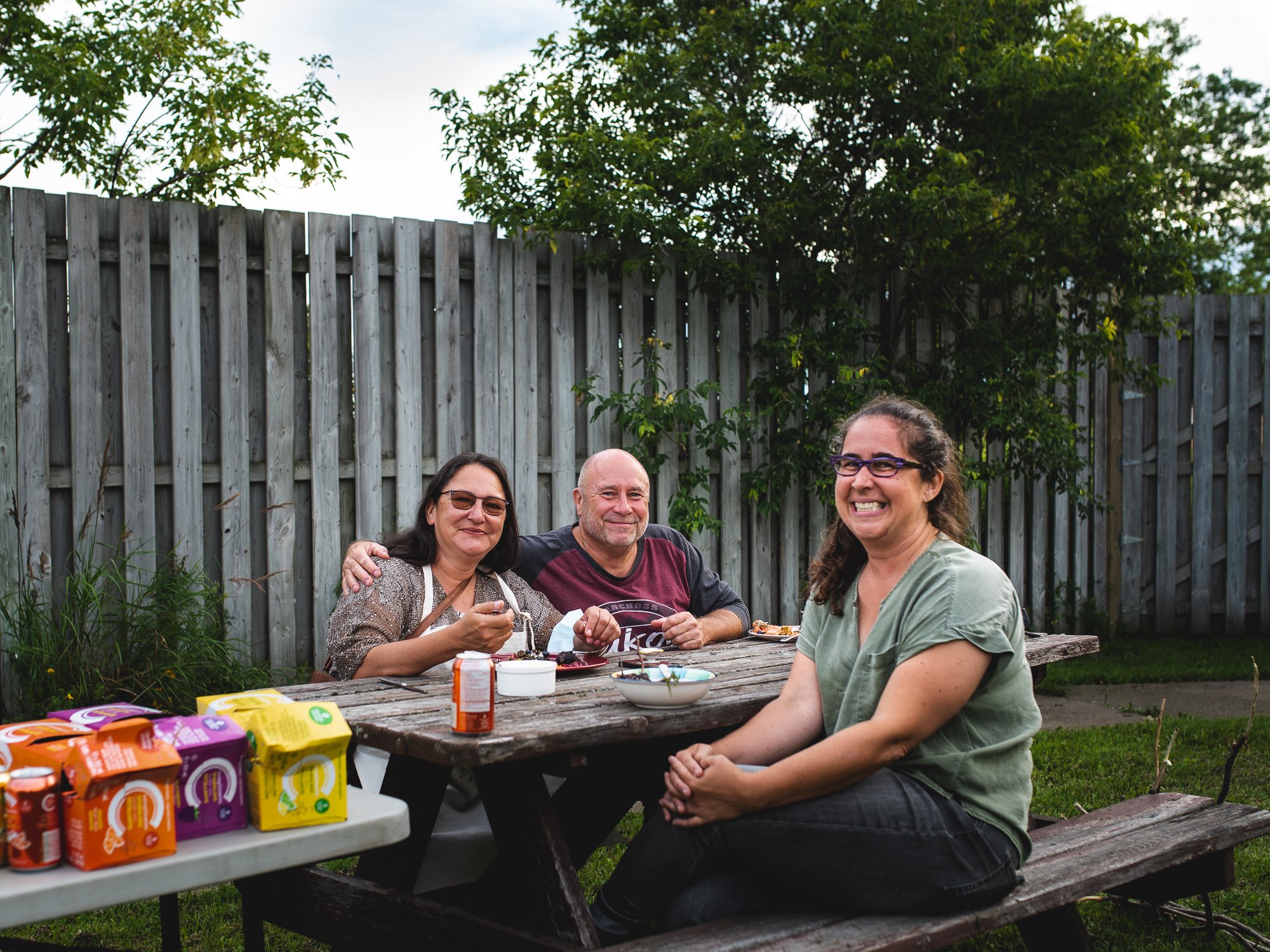From August 15-18, 2022, leaders from health care, community organizations, academia, and Indigenous communities from across Turtle Island gathered in Thunder Bay, Ontario as part of the Nourish Anchor Cohort. Through several days of workshops, site visits, and discussions, participants explored the relationships between food sovereignty and health care leadership.
Here are some snapshots and highlights from the week!
Welcome dinner at sunset
The event started with a welcome dinner at the edge of Lake Tamblyn on the Lakehead campus, where cohort members from across the country met each other in person, many for the first time. Gathering in person was a celebration after more than a year of collaboration, learning, and exchange over Zoom.
““This gathering has helped me to feel comfortable reaching out to others in the Cohort. It’s powerful to be surrounded by people doing the same work.””
Learning from the Indigenous and Allies Advisory
Included in the event were seven members of the Nourish Indigenous and Allies Advisory, who shared stories from their communities and experience in bringing traditional foods into institutional settings. They also brought and prepared foods from their regions, which were showcased during the cooking workshop later in the event.
“It’s meaningful for us to have the chance to honour our traditional foods from each region. It’s been quite the journey coming here from the Haida Gwaii, but it’s been a good journey. We have a saying in the Haida language and this is what I feel: Dii k’uuga st’aax̱uuga – that my heart is full.” ”
Site visit to the Lillie Street Urban Garden
Between rows of lettuce and strawberries, youth and adults from the community focused on pruning, picking, and tending to a colourful field. Nestled in a residential area in the south end of Thunder Bay, the Lillie Street Urban Garden is part of Roots Community Food Centre (CFC) , and is a site for jobs training and growing food, health, and community.
Working closely in partnership with local organizations such as the school board for land, Gaagige Zaagibigaa for food sovereignty projects, and groups that provide jobs training for newcomers or the recently incarcerated, the garden modeled Roots CFC's belief in building belonging and dignity through food, a goal that Nourish Anchor Cohort members share for their own food services.
Participants in the cohort heard firsthand from Program Director Airin Stephens and Community Grower Jordan Lees about continually learning from the land and people in the region, demonstrating cultural humility, and working to support Indigenous wellbeing and food sovereignty as a non-Indignenous organization.
“We started a crate garden project in our community, and visiting the Lillie Street Garden showed me what is possible. I’m leaving feeling inspired.””
Cooking workshop at Roots CFC
The beautiful industrial kitchen was abuzz with energy as food service managers, community leaders, clinicians, dietitians, and others put on aprons and prepared to cook together. Working under the guidance of four different leaders and chefs, the Anchor Cohort prepared a feast:
“I feel so grateful to have chefs and leaders come and bring foods from across the country, and it was so amazing for us to get to participate in cooking together and see the kinds of traditional foods in each region.””
LEARN MORE ABOUT ROOTS CFC’S APPROACH. Click here to download a copy of “Dignified Food Access: A Framework for Action an Handbook for Organizations,” which explores the idea of dignified food access, guiding principles for work, and key elements for enacting dignified food access.
Tour of the Regional Food Distribution Association
Participants learned about how surplus food is being redistributed to remote communities in Northwestern Ontario, new innovations for emergency food distribution, and local programming offered in their kitchen. The tour also sparked meaningful conversations on how every part of the food system is an opportunity to exercise cultural humility and dismantle racism.
Mapping out interventions across three horizons
The Anchor Cohort again rolled up their sleeves to workshop innovation challenges they are undertaking with coaching and a $10,000 prototyping grant from Nourish. In response to wicked problems framed earlier with community partners around themes of food waste, systemic racism, large carbon footprints, food insecurity, and the inefficient use of health care resources, each team generated a portfolio of innovations prior to the retreat using the Three Horizons model.
• Horizon 1 (“Same game, same rules”): Refers to innovations that likely deliver incremental change within an existing system.
• Horizon 2 (“Same game, different rules”): Creates disruption to introduce new opportunities in a given system, challenging assumptions and what is most vulnerable to change without overhauling the system entirely.
• Horizon 3 (“New game, new rules”): Transforms and reimagines the world as we know it today. This involves substantial changes to world views, values, and narratives.
The Three Horizons model helps teams discern between interventions that are likely to gain traction within the current horizon (or “game”) through incremental shifts toward a more desirable future, and projects that would shift the rules to bring about a fundamentally new “game” - the preferred future they are working toward.
After spending the past several months identifying, organizing, and beginning to prototype these system interventions, Anchor Cohort participants outlined their achievements so far and used a “Wise Crowds” exercise to seek advice from peers on their biggest challenges. Insights were shared on a range of topics including organizational culture change, navigating colonial bias, relationship management, building equitable community partnerships, and scaling promising innovations across jurisdictions.
Common innovation themes emerging from the Cohort included:
Traditional food access in health care settings as a pathway toward reconciliation
Re-design of inpatient menus with a planetary health focus, including sustainable procurement
Health care leadership on food prescriptions for food insecure households
As participants from the first and current Nourish cohorts sat together, the gathering closed with final thoughts, including reflections such as “The kitchen is the heart of so many of our homes, why would we leave them out of our places for healing?” and “The decolonization work and the climate work cannot be separated, they go hand in hand.”
Much like the place-based and collaborative work of the Anchor Cohort teams, this gathering would not have been possible without the collaboration of local partners, including:
The Northern Ontario School of Medicine, who hosted us on the campus they share with Lakehead University and helped us to plan the event
Thunder Bay + Area Food Strategy, who donated NOSH magazines for each participant and offered their valuable time to connect Nourish with local food producers, tours, and collecteding local ingredients on our behalf
Roots Community Food Centre (Roots CFC), who shared their space for aour cooking workshop and led us on a guided tour around their site, including the Lillie Street Garden, and connected us with local supporters
The Thunder Bay Indigenous Friendship Centre, Gloria Ranger, who accompanied our planning and ensured we had our event opened and closed in a good way with Elder Gerry Martin, Gloria also led one group through a cooking workshop to prepare wild rice dishes
Gaagige Zaagibigaa, who provided traditional foods to our cooking workshop and local jams for our meals
The City of Thunder Bay, who donated all of the PPE for our gathering and provided logistical support
Chad Kirvin, who captured our event with film and tirelessly shared his creative energy
The circle around this work has been growing and there are many ways in; if you’re looking for your way to participate, check out the Food is Our Medicine Learning Journey or the forthcoming Planetary Health Menus action learning series – or reach out to our team!
